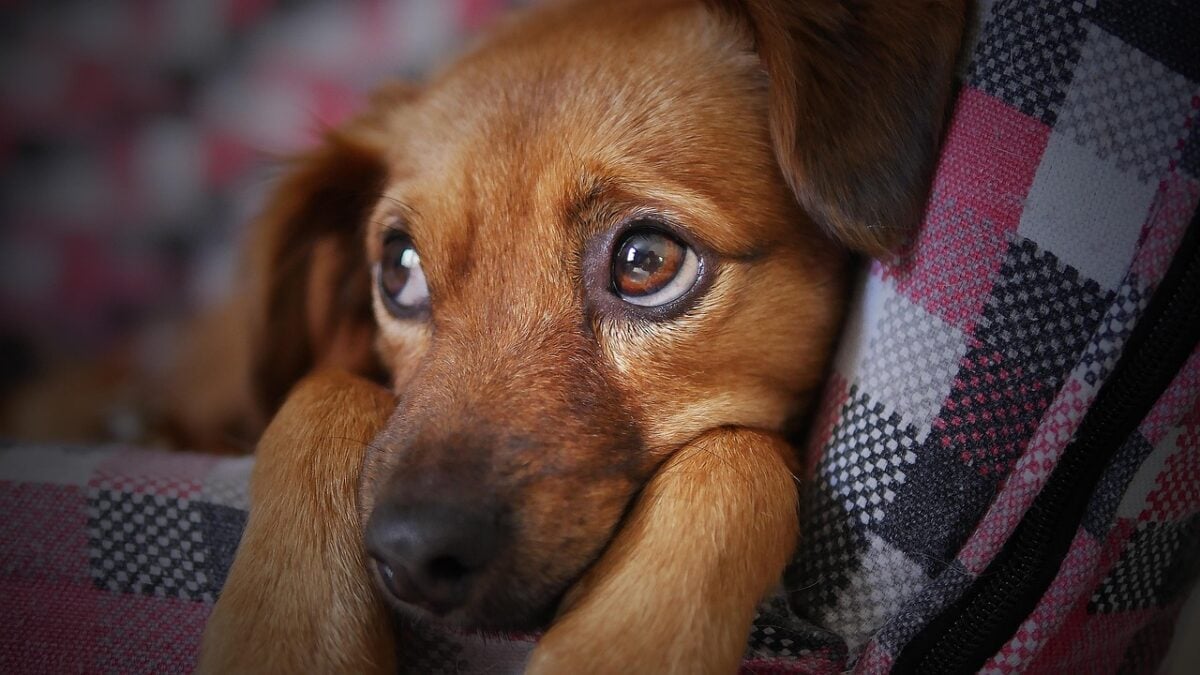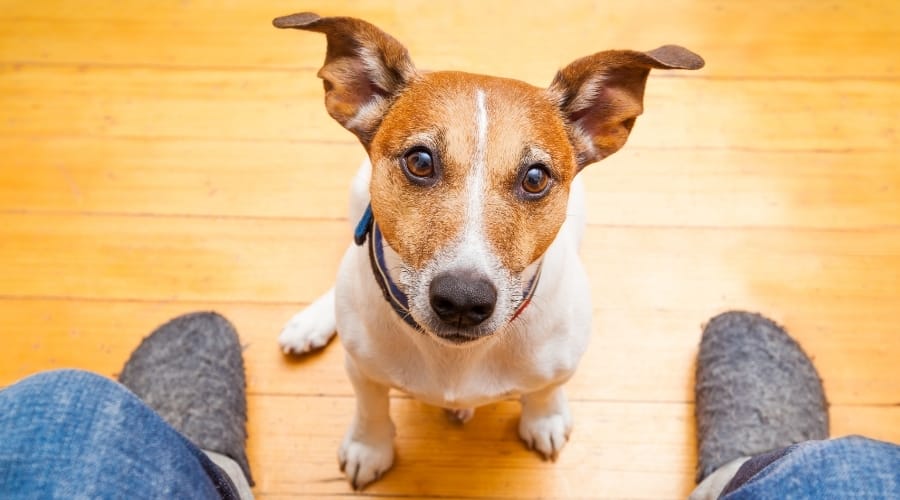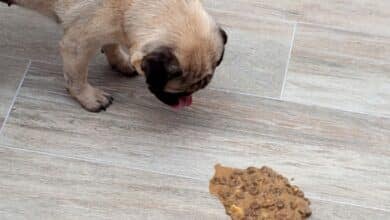Wait… Why Is My Dog Licking Another Dog’s Ear?
When you purchase through links on our site, we may earn a commission. Here’s how it works.
You glance over at the dog park and, yep, your pup is tongue-deep in another dog’s ear. Gross? Sweet? A little of both.
Table of Contents
But here’s the thing: this weird little habit actually means more than you think. Some reasons are adorable, others are downright concerning — and knowing the difference matters.
So why do dogs lick each other’s ears? Let’s find out.
Why Do Dogs Lick Each Other’s Ears? 7 Common Reasons
Dogs rarely do something without a reason. Ear-licking is actually a multi-purpose behavior that can reveal a lot about their emotional state, social bonds, or even their health. Below, we’ll explore the most common explanations — some adorable, some a little gross, and a few you’ll want to watch closely.
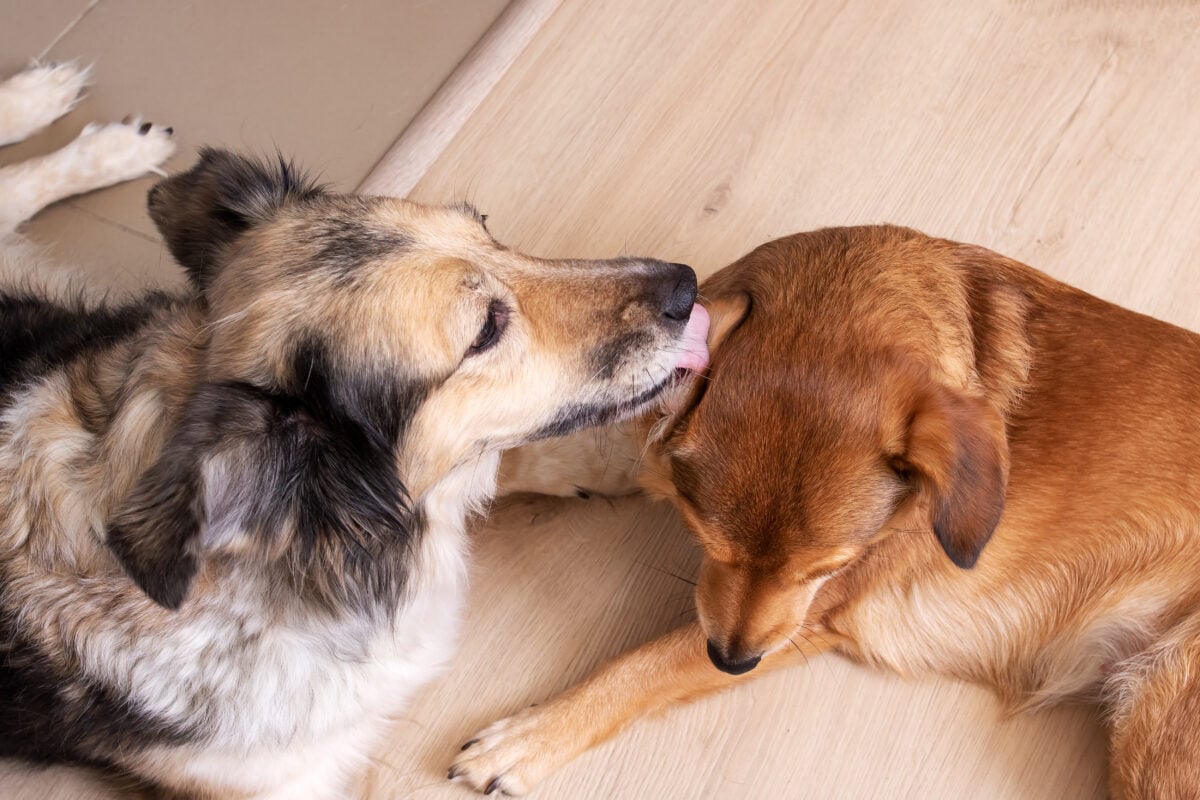
1. Puppy Love In Action: Showing Affection
Think of ear-licking as your dog’s way of writing a love note — only messier. Dogs use licking to bond with their humans, their puppies, and each other. It’s a tactile way of saying: “You’re part of my pack.”
- Puppies often lick their mothers and littermates as a comfort signal. That instinct doesn’t fully disappear when they grow up.
- Adult dogs may carry the behavior into friendships with their housemates or playgroup buddies. A quick lick on the ear can reinforce trust and closeness.
- You might even notice your dog alternates between grooming you (face licks) and their canine friend (ear licks). In their world, it’s all part of showing love.
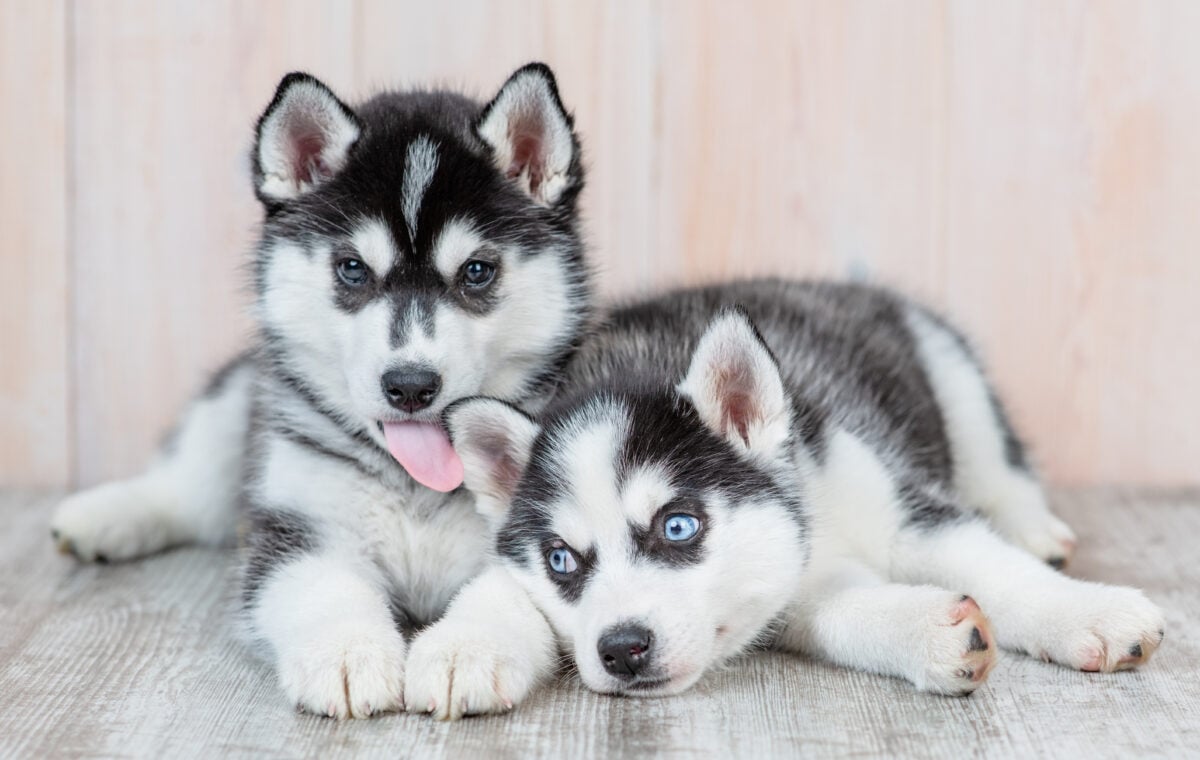
2. Secret Dog Code: Social Communication
Dogs don’t rely on words — they rely on body language, scent, and touch. Ear licking can be a subtle way of sending social signals, whether that’s “I respect you,” “Let’s be friends,” or even “Don’t bite me, I come in peace.”
- In pack dynamics, subordinate dogs may lick more dominant ones to show submission. The ear is a “safe zone” compared to licking the muzzle, which can be seen as more confrontational.
- Among equals, ear licking can signal play readiness or reinforce their friendship bond.
- Evolutionary context: Wolves and wild canids lick packmates to reduce tension and strengthen unity — domestic dogs inherited this trait.
So when you catch your dog mid-ear-lick, they might be holding a full-on conversation without making a sound. Read our guide on how dogs communicate with each other to learn more.
3. Canine Spa Day: Grooming & Hygiene
Sometimes, ear licking is just your dog playing esthetician. Dogs are naturally inclined to groom one another (and you), and ears are one of those tricky spots a pup can’t easily reach themselves.
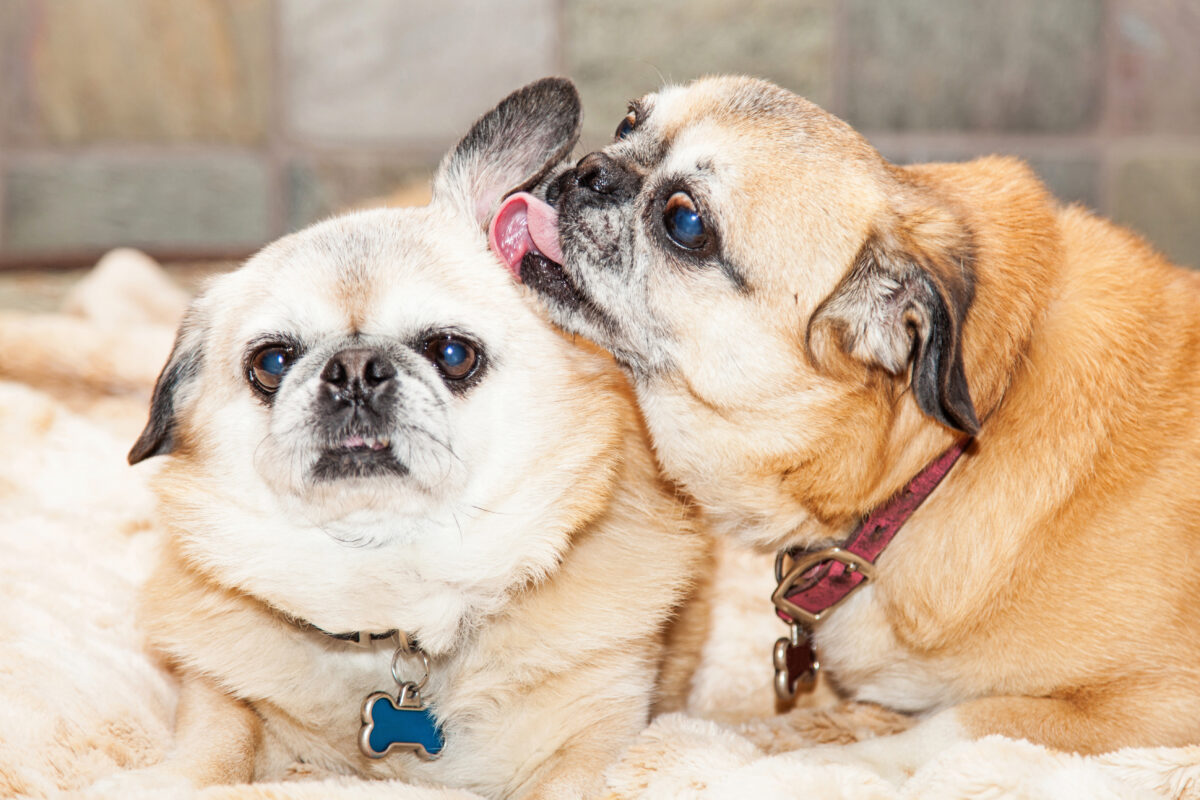
- A gentle lick can help remove dirt, earwax, or debris — almost like brushing a friend’s hair.
- Grooming isn’t just about cleanliness; it’s also about reinforcing social bonds. Studies on social grooming in animals show it lowers stress and cements friendships.
- You might notice one dog in a multi-pet household takes on the “cleaner” role, repeatedly tending to their buddy’s ears.
4. Bowing Down: Respect & Submission
Not every ear lick is affectionate — sometimes, it’s political. In the dog world, hierarchy matters, and licking can be a way of acknowledging rank.
- Submissive dogs may lick a dominant dog’s ears to show deference, much like lowering their body or tucking their tail.
- This behavior is deeply rooted in canine ancestry. Wolf pups, for instance, lick adults’ faces and ears to signal hunger or respect.
- A timid dog may also lick ears as a peace offering, essentially saying: “I’m no threat — please don’t rough me up.”
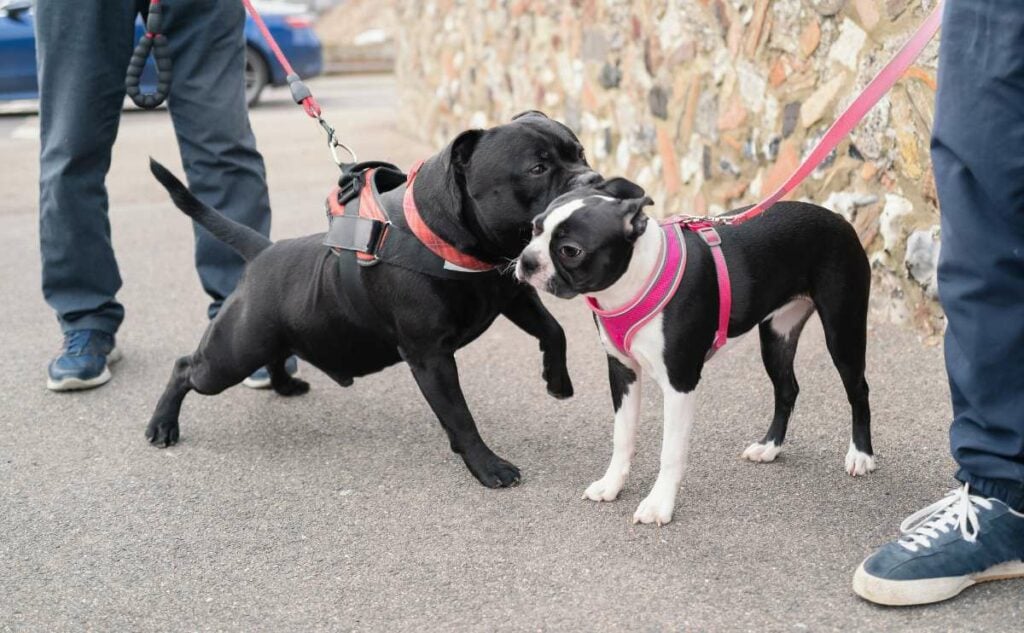
It might look silly to us, but to dogs, ear licking is part of the social contract. Understanding it can help you read dynamics in multi-dog households or at the park.
5. The Gross Truth: Earwax Smells & Tastes Interesting
This is the part most dog parents grimace at: dogs may lick ears simply because earwax tastes and smells… fascinating.
- Earwax contains fatty acids, cholesterol, and salt — all things dogs’ taste buds and scent receptors find stimulating.
- A dog’s sense of smell is up to 100,000 times stronger than ours, so what’s “barely noticeable” to you is a five-course meal in their world.
- For some pups, the appeal becomes a quirky habit. They aren’t being “gross” — they’re just following their senses.
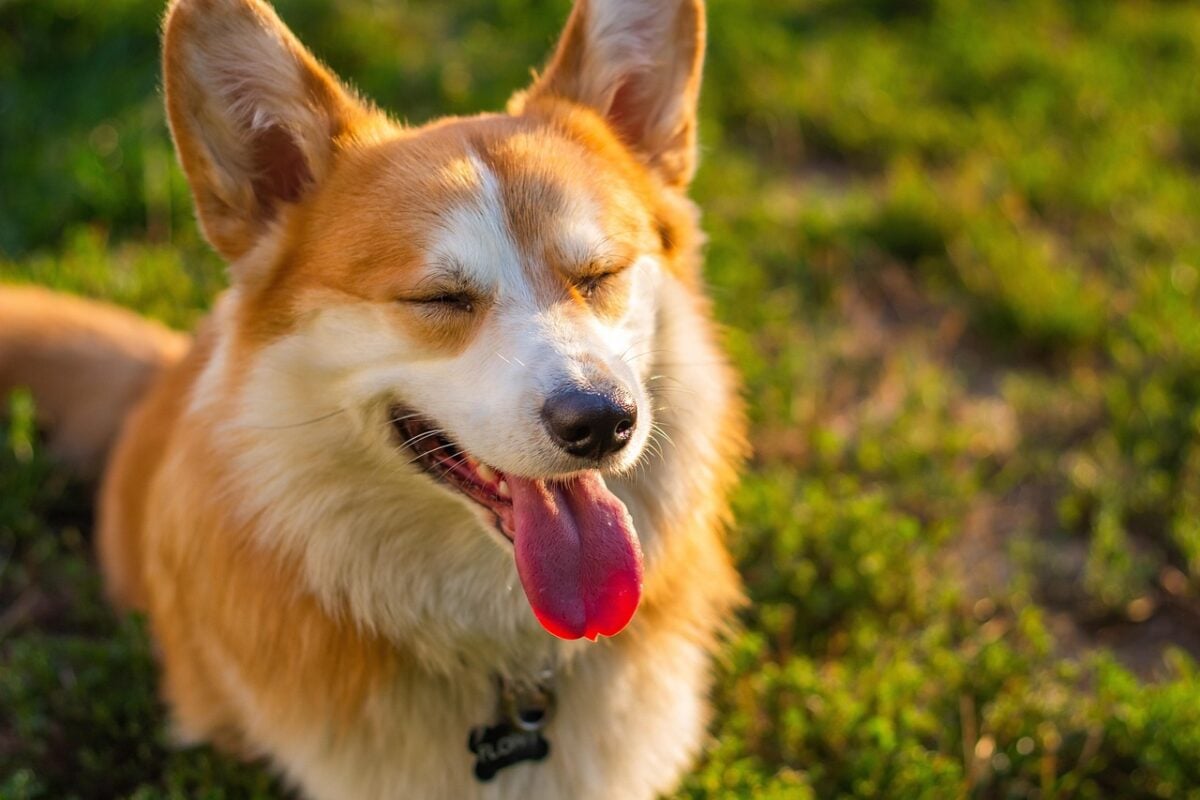
Of course, letting your dog snack on earwax isn’t exactly ideal for hygiene or health. But the occasional lick? Totally normal.
Fast Fact: Dogs have about 1,700 taste buds compared to humans’ 9,000, but their sense of smell is up to 100,000 times stronger. So your dog smells way more “going on” in an ear than you ever could.
6. Stress Relief For The Licker
Not every ear-licking episode is about the dog being licked — sometimes it’s about the dog doing the licking.
- Repetitive licking can act like a comfort blanket, helping dogs cope with stress or boredom.
- For anxious dogs, ear licking may be a displacement behavior — instead of pacing or chewing furniture, they channel that energy into grooming a buddy.
- You might see this more during stressful events like thunderstorms, fireworks, or when routines change.
The catch: when licking shifts from occasional to obsessive, it’s time to intervene. Compulsive licking isn’t healthy for either dog and could signal underlying anxiety issues.
7. Canine Doctor Mode: Detecting Illness Or Infection
Here’s where ear-licking gets really interesting: sometimes, your dog is playing amateur veterinarian. Dogs’ noses can detect subtle changes in scent caused by yeast, bacteria, or inflammation. That means they might zero in on another pup’s ear if something’s off.
So if your pup suddenly fixates on licking another dog’s ears (or their own), take it seriously. It might be affection — but it could also be their way of saying, “Something’s not right in here.”
Did you know? Dogs have been trained to detect illnesses like cancer, diabetes, and even COVID-19. Studies show they can smell tiny chemical changes in the body that humans would never notice.
A Vet’s Personal Experience
Dogs have a keen sense of smell and may pick up on things like infections before we notice them. I have certainly seen a couple of cases in practice, where one pet has taken more interest than usual in another pet’s ears.
Examination of the ear canal with an otoscope revealed an ear infection, which we were then able to treat. One German Shepherd I saw in practice was suddenly being licked excessively by the other family dog, but had shown no signs of head shaking or scratching yet.
He didn’t seem to mind being licked, but it was unusual behaviour between the two of them. On examination, we found an ear infection brewing in his right ear canal, which we were able to treat successfully, so it’s always worth getting your pet checked over if there are any changes in their behaviour.
– Dr. Rebecca MacMillan, BVetMed BSAVA PGCertSAM MRCVS
Breed Tendencies: Who’s The Biggest Licker?
Some dogs are simply more likely to get their slobber on.
- Retrievers & Spaniels: Social and affectionate, these dogs are top contenders for “household ear cleaners.”
- Herding Breeds: Border Collies and Aussies may lick as part of their “caretaker” instincts.
- Toy Breeds: Chihuahuas and Yorkies often latch onto one buddy and show devotion with licks.
- Independent Breeds: Chow Chows, Shibas, and Basenjis? They’d rather keep their dignity intact.
If you’ve got a “licky breed,” don’t be surprised if ear licking is just part of the package.
What About When Your Dog Licks Your Ears?
If your pup skips their doggy friends and goes straight for your ears, you’re not alone. Many dogs happily extend their ear-licking habit to their favorite humans. Why?
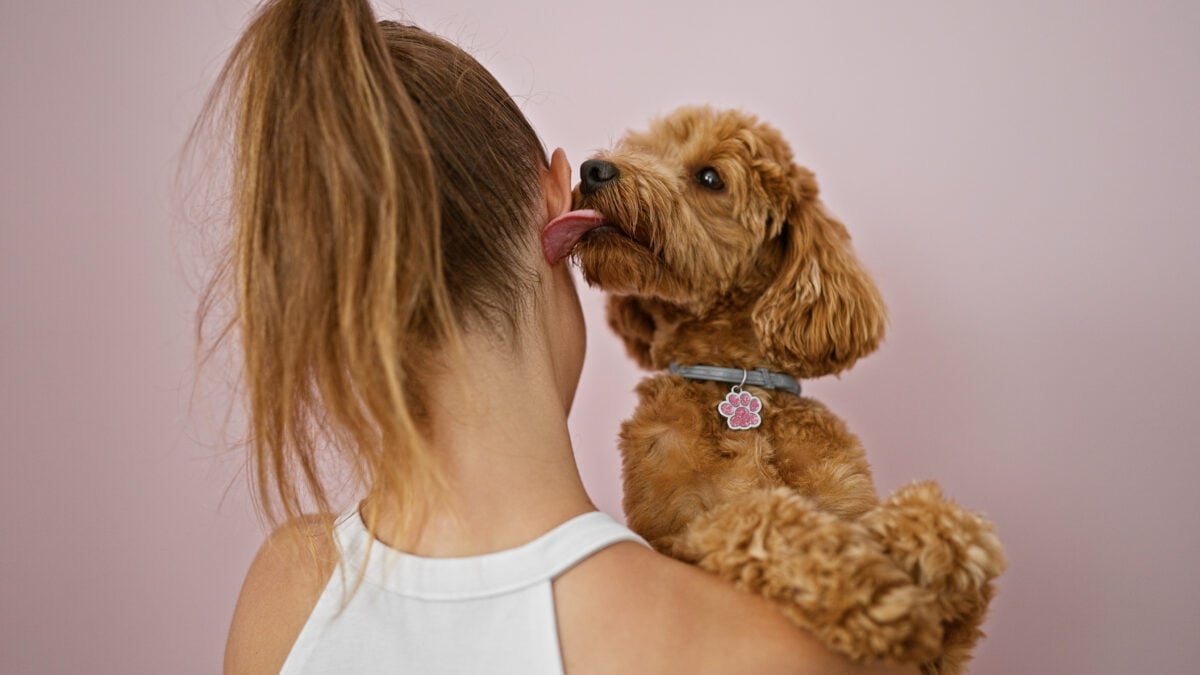
- Affection: Just like with other dogs, it’s often their way of saying, “You’re part of my pack.”
- Taste & Smell: Earwax has salty compounds dogs find appealing — yes, gross to us, gourmet to them.
- Attention-Seeking: Some pups quickly learn that ear-licking gets a big (and funny) reaction from their humans, so they repeat it.
- Comfort: The act of licking is soothing, whether aimed at another dog or your unsuspecting earlobe.
Should you allow it? An occasional lick won’t hurt you, but ears are sensitive and can harbor bacteria. If it’s constant, redirect with a toy or cuddle session instead.
Is It Safe When Dogs Lick Each Other’s Ears?
The short answer: sometimes yes, sometimes no. Occasional ear licks are usually harmless — think of it as canine small talk. But if it becomes constant, or if one dog clearly dislikes it, that’s when you should step in.
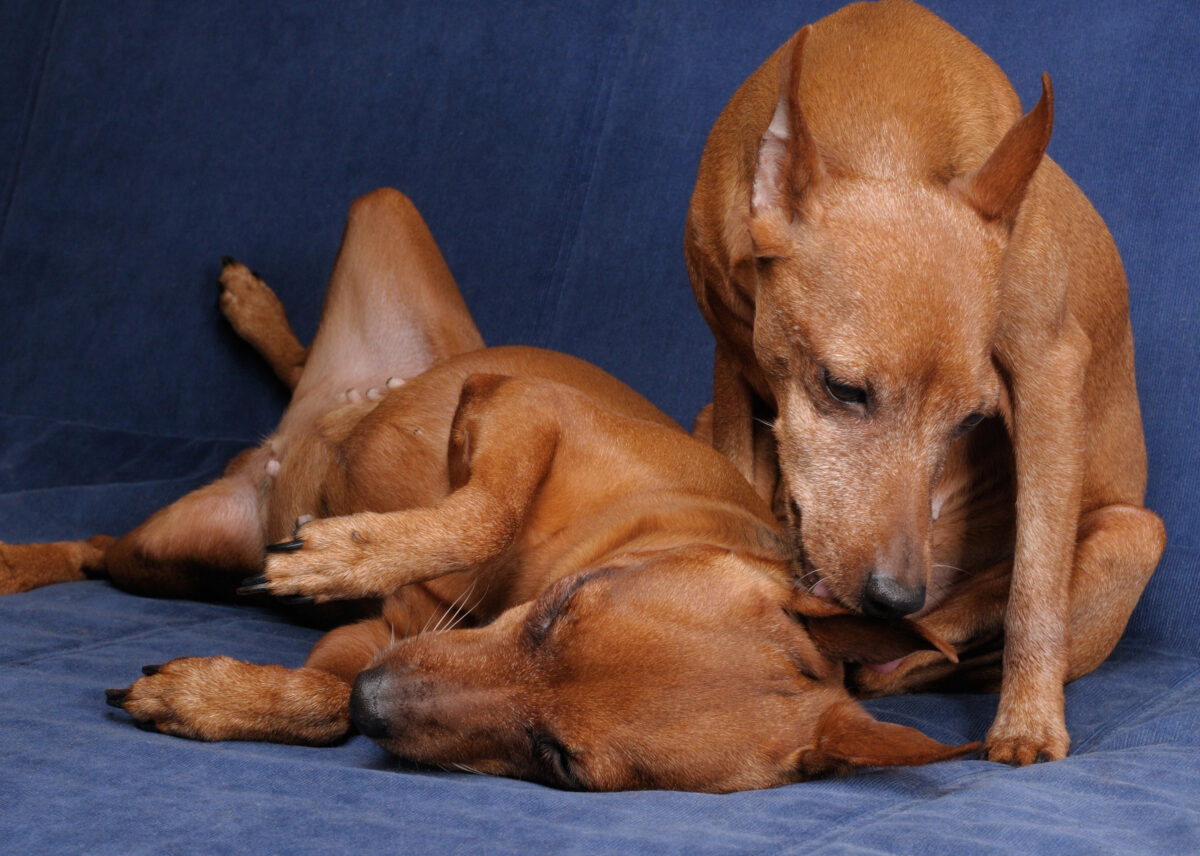
- Normal: A few licks during play or cuddle time.
- Concerning: Persistent licking that leaves ears wet, irritated, or smelly.
- Red flag: One dog yelps, pulls away, or develops redness/discharge in the ear.
“Unless the licking behavior is excessive, it is unlikely to cause a real problem,” shares Dr. MacMillan. “A dog’s tongue can’t reach far enough down the narrow opening of the ear canal. However, repetitive licking may moisten and irritate the entrance to the ear canal and external skin, plus it could really annoy the dog being licked.”
Bottom line? If your dog licks their buddy’s ears every once in a while, it’s no big deal. If it turns into a full-time job, you’ve got a problem brewing.
Potential Risks Of Dogs Licking Each Other’s Ears
Even though it looks harmless (or even sweet), too much ear-licking can cause trouble. Here’s what to watch out for:
- Ear Infections: Moisture left behind creates the perfect environment for yeast and bacteria. Floppy-eared breeds are especially vulnerable.
- Spread of Parasites: Ear mites, though more common in cats, can spread between dogs through close contact.
- Skin Irritation or Injury: Constant licking can cause raw spots, sores, or even hematomas if the other dog scratches excessively.
- Reinforced Habit: The more dogs lick, the more they may want to lick — turning a once-cute quirk into a compulsive behavior.
Veterinarian Advice
If your dogs have never licked each other’s ears before, or you notice a sudden marked increase in behavior, this could be a clue that there’s an underlying issue that may need investigation.
If the dog being licked has an increase in earwax, reddening of the skin around the entrance to the ear canal, or an increase in odor from that ear, it could indicate an infection. Infection can cause other family pets to pay more attention than normal to their ears.
Dogs with ear infections may also scratch at their ears, hang their heads on one side, or shake their heads excessively. These are all signs that you should take your dog in for a check-up.
– Dr. Rebecca MacMillan
Human Reactions: Should You Step In Or Let It Happen?
Let’s be honest: watching your dog go to town on another pup’s ear can spark two reactions — aww, that’s sweet, or eww, please stop. Both are valid.
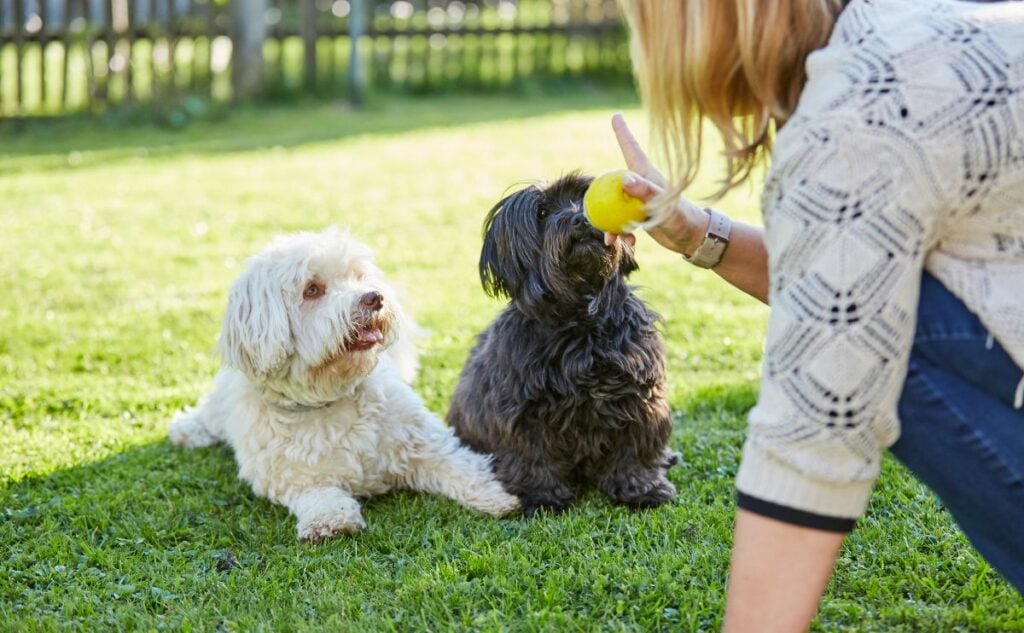
- When it’s okay to let it slide: A quick lick here and there, especially if both dogs seem comfortable. It’s no different than dogs sniffing each other as part of social bonding.
- When to step in: If it gets obsessive, leaves ears wet, or the other dog is clearly annoyed. Ear infections are no joke, and not every pup appreciates being used as a canine Q-tip.
- Finding balance: You don’t have to hover over your dog 24/7, but it’s smart to supervise and gently redirect when things get a little too enthusiastic.
Think of it this way: an occasional ear lick is like your friend stealing one French fry. Fine. But if they finish half the basket, you’re going to say something.
Dog Park Drama: When Ear Licking Gets Awkward
Ear-licking isn’t just an at-home quirk — it can cause some serious side-eye at the dog park.
- Other dogs may not love it. What your pup sees as affection, another dog may see as annoying or intrusive.
- Owners get embarrassed. Not everyone wants their pooch used as a walking ear-cleaner (especially if their dog has an ear infection brewing).
- Potential for conflict. Persistent licking can escalate into growls or snaps if boundaries aren’t respected.
Dog park etiquette tip: If your pup is an enthusiastic ear-licker, supervise closely. Redirect with a toy or recall command before things get awkward. It’s better to laugh it off than break up a spat.
How To Stop Dogs From Licking Each Other’s Ears
If your dog’s occasional ear-licking has turned into a full-blown spa obsession, it’s time to step in. The goal isn’t to shame your pup — it’s to redirect the habit before it leads to infections or compulsive behavior. Here’s a vet-approved game plan:
1. Interrupt & Redirect
Don’t just yell “stop!” — give your dog something better to do.
- The goal is to replace the licking with a more rewarding activity.
- Use a calm “leave it” or “uh-uh” command when you catch them mid-lick.
- Immediately offer a chew toy, puzzle, or a quick play session.
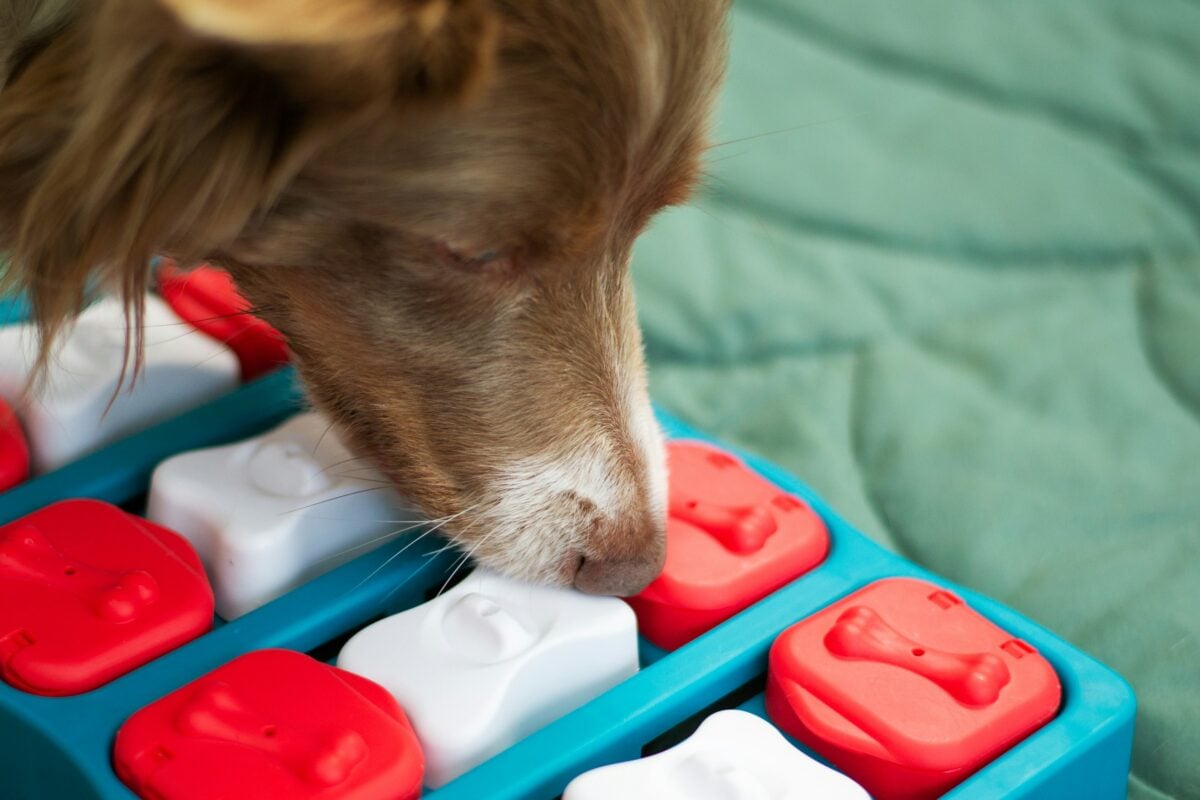
2. Strengthen Training Cues
Consistent commands can prevent ear-licking from even starting.
- Reinforce basic commands like “leave it” and “come” with treats and praise.
- Short, frequent training sessions help dogs understand what behavior you want.
- If you live with multiple dogs, practice cues in group settings so they translate to real life.
3. Reduce Stress & Boredom
Many dogs lick out of anxiety or sheer boredom. Fix the root cause and you’ll see less slobber.
- Make sure your pup gets plenty of exercise to burn off nervous energy.
- Offer enrichment like lick mats, snuffle mats, or interactive dog toys.
- During stressful events (fireworks, visitors), try calming aids or safe spaces.
4. Keep Ears Clean & Healthy
The less “interesting” the ears smell, the less tempting they are to lick.
- Clean your dog’s ears regularly with a vet-recommended solution.
- Floppy-eared breeds may need more frequent cleanings.
- Skip cotton swabs — they push debris deeper and risk damage.
5. Call In Reinforcements When Needed
Sometimes, licking isn’t just a habit — it’s a symptom.
- If licking is obsessive or paired with signs of infection, it’s time for a vet check.
- In rare cases, a veterinary behaviorist may be needed for compulsive licking disorders.
- Don’t wait until ears are red and smelly — prevention saves both money and your dog’s comfort.
Frequently Asked Questions
Pup owners have a lot of questions about dog ear licking. If you don’t see yours here, ask us in our comments and we’ll do our best to answer you.

Why Does My Dog Only Lick One Specific Dog’s Ears?
Dogs often pick a “favorite.” It could be a sign of a stronger bond with that dog, or they may be detecting a subtle ear infection or odor only they can smell. If the licking is obsessive, have both dogs checked by your vet.
Is Ear Licking More Common In Puppies Or Adult Dogs?
Puppies lick more overall — it’s how they explore and communicate. As dogs mature, some grow out of the behavior, while others keep it as a quirky adult habit. Ear licking in adults is more about bonding or social signaling.
Can Ear Licking Spread Ear Mites?
Yes. While ear mites are more common in cats, they can spread between dogs through close contact. If your dog is licking and scratching excessively, or you see dark discharge in the ear, schedule a vet check.
Should I Clean My Dog’s Ears More Often To Prevent Licking?
Regular cleanings help, but don’t overdo it. Too much cleaning can irritate the ear canal. Aim for once a month, or more often if your vet recommends it — especially for floppy-eared breeds.
Why Do Some Dogs Hate Being Licked?
Just like people, some dogs simply don’t enjoy close-contact grooming. A dog that growls, stiffens, or pulls away when another dog licks their ears is saying “back off.” Respect their boundaries to avoid fights.
Can Ear Licking Be A Sign Of Love, Like Kissing?
In many cases, yes. Ear licking is often affectionate — dogs don’t think it’s gross the way humans do. But remember, love and health checks often overlap in the canine world. If it gets excessive, love can quickly turn into ear infections.
Other Weird (But Normal) Dog Licking Quirks
Ear licking isn’t the only slobbery quirk our pups have. Curious about what all that licking really means? Check out these guides next:
Your dog’s licking habits might be grosser than you’d like — but they almost always have a story behind them.
Does your dog have a quirky ear-licking ritual — or are they the one who puts up with it? Share your story in the comments below. We love hearing your pup’s weirdest habits.
